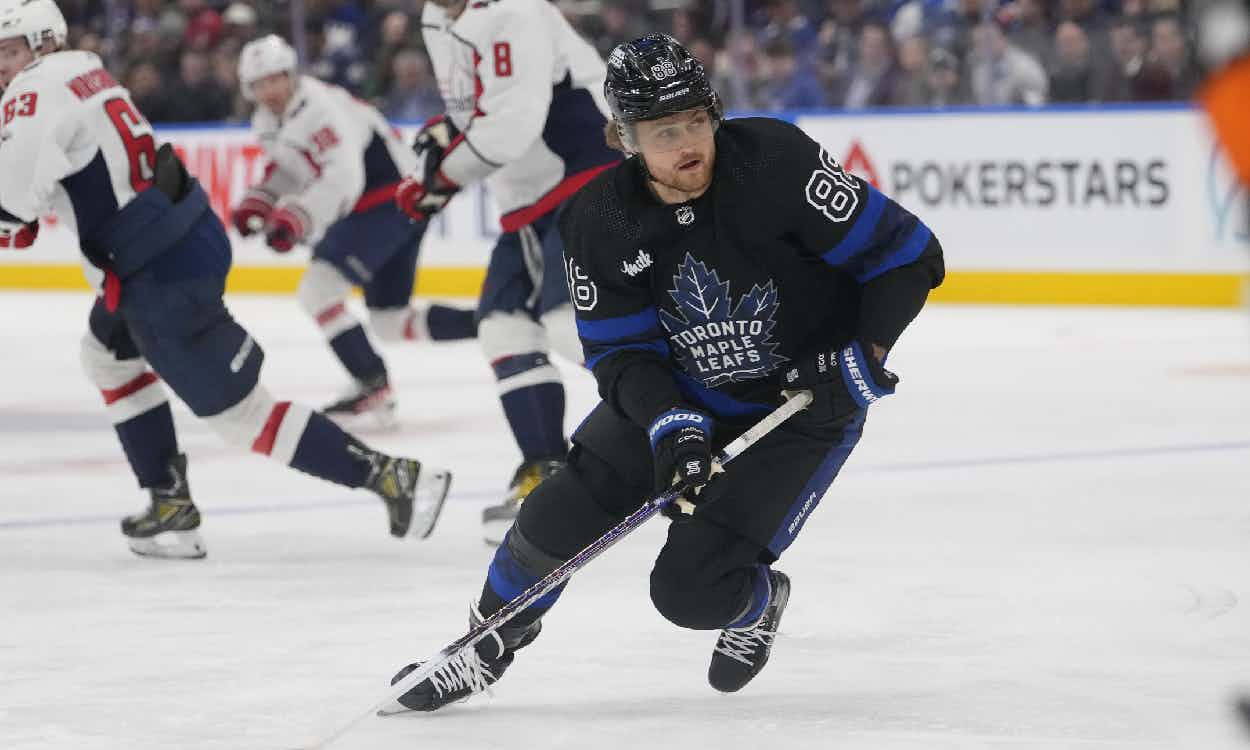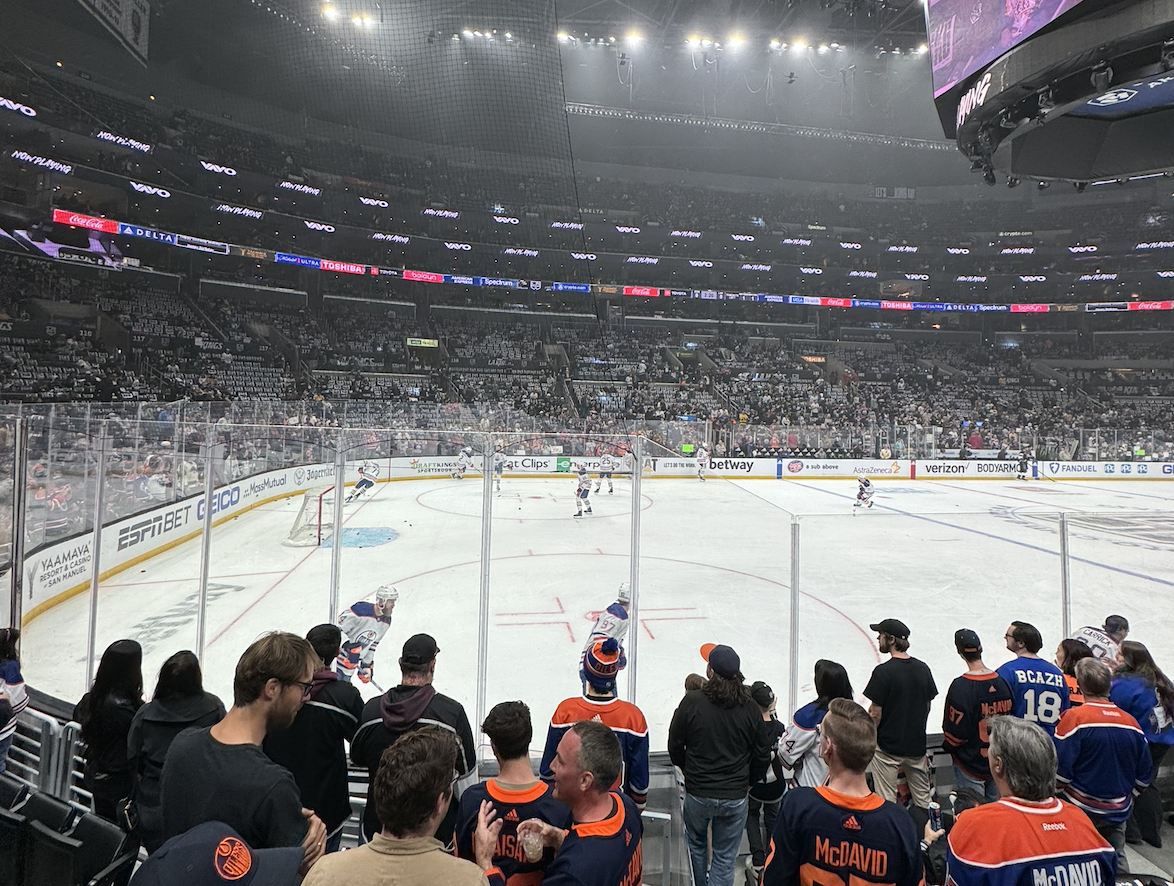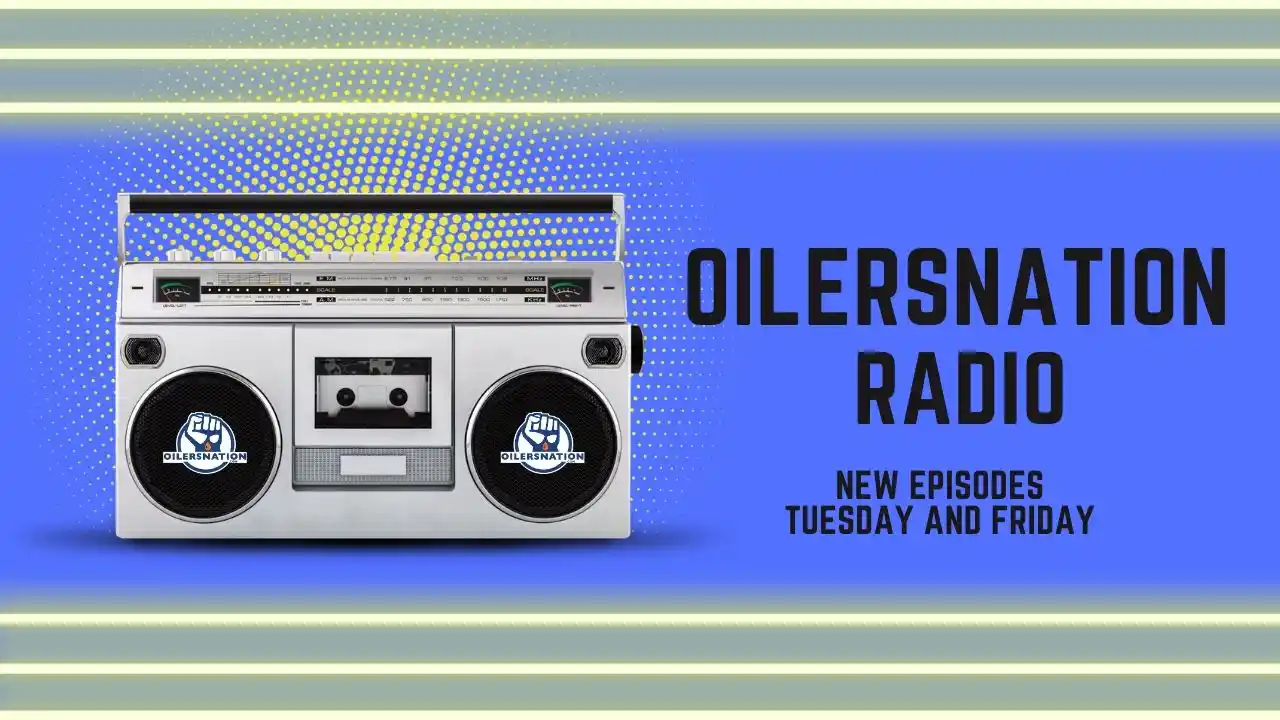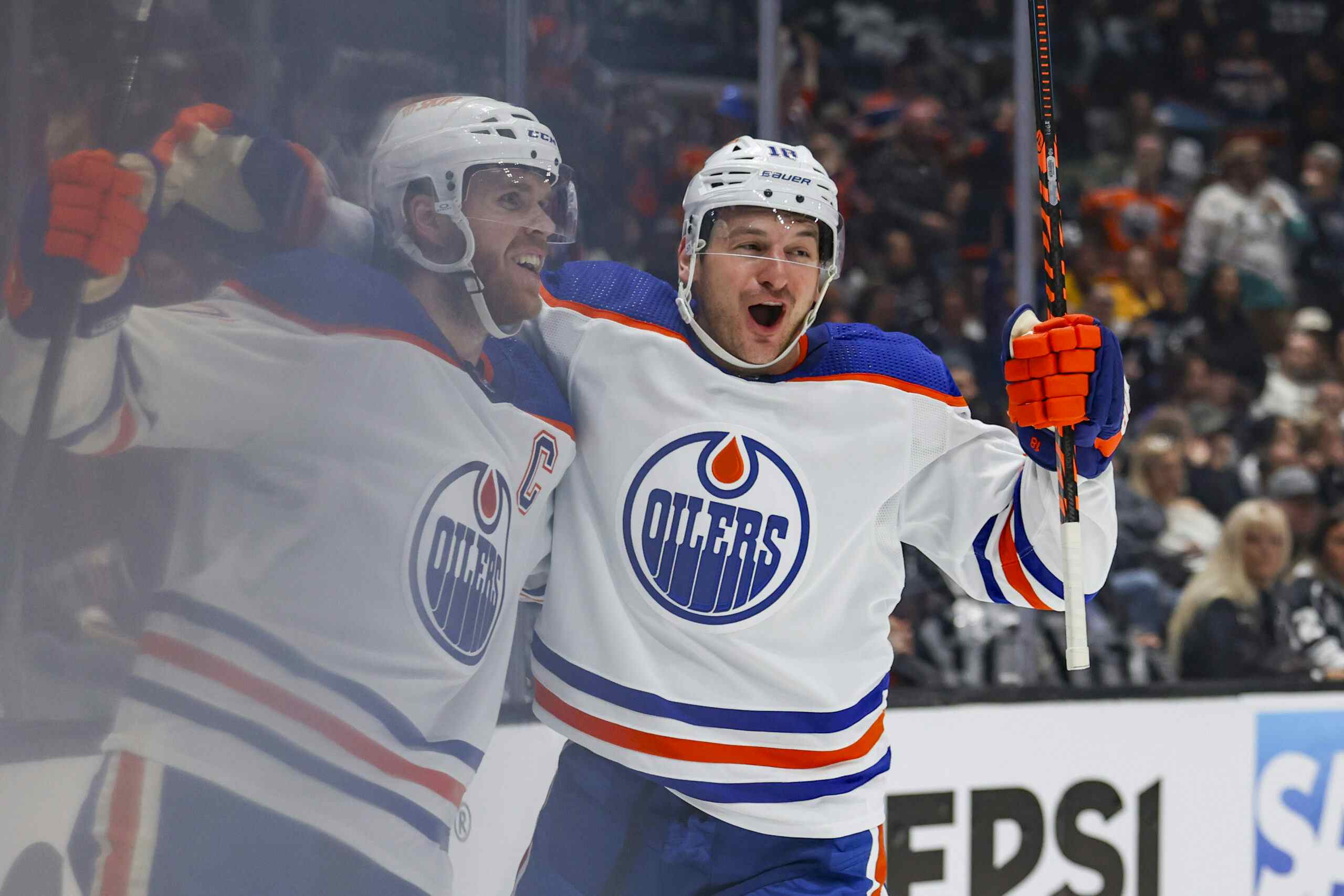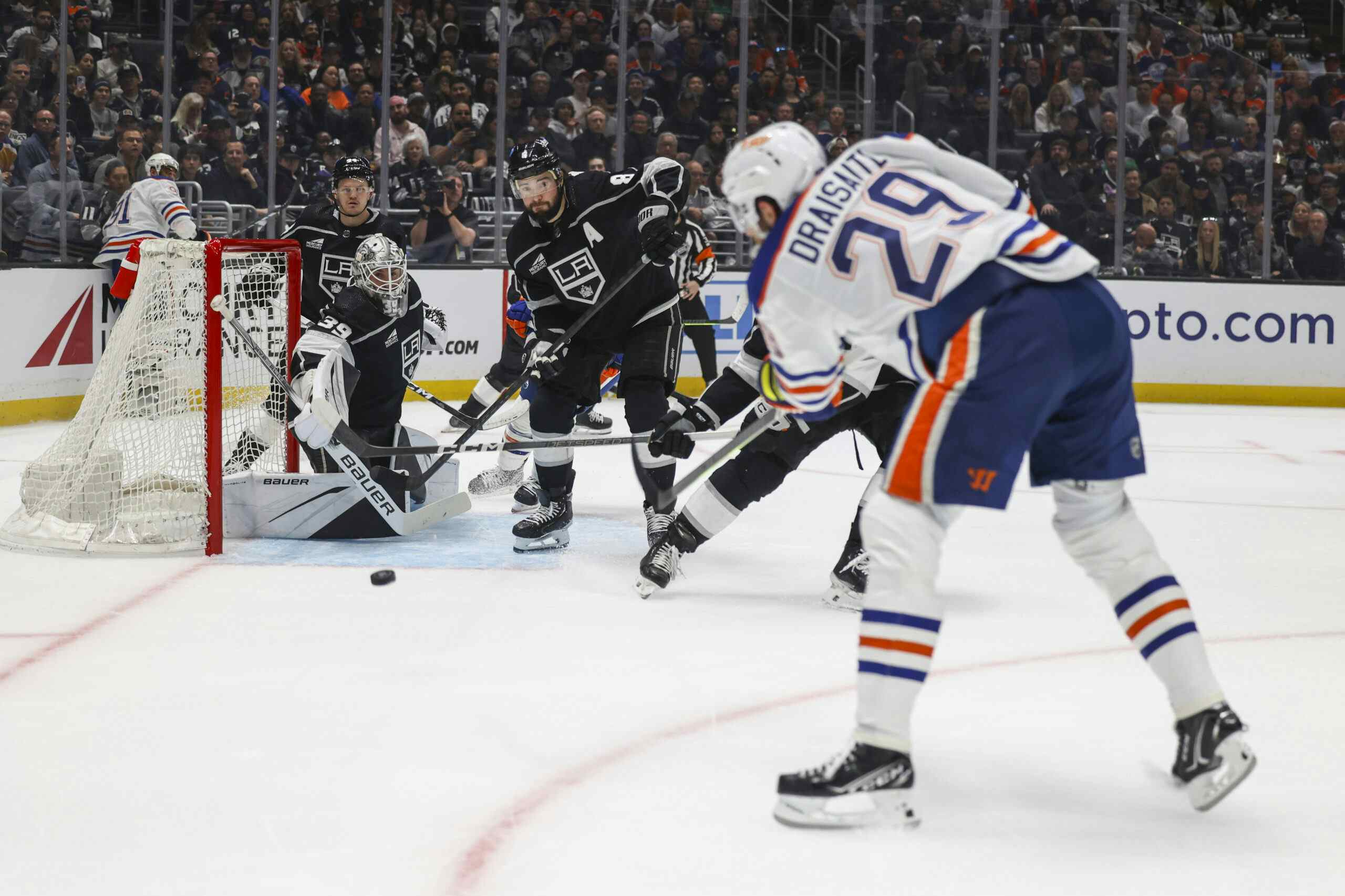OATES: “My mindset is I want to be a head coach.”
By Jason Gregor
9 years ago
Adam Oates was fired after only two seasons in Washington. His Capitals had the 8th most points in the shortened 2013 season, but missed the playoffs by three points this year. The Capitals cleaned house firing Oates and longtime GM, George McPhee.
Oates is currently working on the CBC panel during the playoffs, and I spoke with him last week to get his thoughts on coaching, the playoffs and one of his former teammates, Brian Sutherby.
Oates spoke to Sutherby and I last week. My thoughts are in italics.
Gregor: Would you be willing to go back to being an assistant or an associate if the offer was there or do you feel that you are more of a head coach?
Oates: You know what, that’s a good question. Quite honestly right now my mindset is I want to be a head coach. I had a couple of years at it and obviously when you get fired, you have mixed emotions and you want another opportunity, you want to keep improving at every position, at every level. I want to improve as a head coach and I’d like another opportunity at it. But I think that I can do the job.
***A few listeners wondered why I didn’t ask him specifically about being as assistant in Edmonton. Currently, the Oilers don’t have any openings, and while I feel they should make some changes amongst their assistants, it would have been unfair to ask Oates about a job that isn’t currently vacant.***
Gregor: What was the biggest difference being the head coach from an assistant coach?
Oates: The biggest difference is when you are the assistant you are trying to be in your bosses mind. You want to finish his sentences every night. So every decision he makes, you’re thinking the same thing. And as the head, you just have more responsibilities; you have a few more sleepless nights because at the end of the night it is your call on every single decision.
Sutherby: As a head coach, how would you describe your sort of coaching philosophy and approach to players? A Lot of guys talk about being a hard guy or a player’s coach, where would you fit in?
Oates: I like to think that I’m in the middle. I would say that if you look at the Rangers coach right now, I would like to put myself in that category. AV [Alain Vigneault] is very calm. He’s obviously in control, he teaches, he talks. I think you don’t have to raise your voice to get your point across, I don’t. And I think that the athletes nowadays are different than when I played and coaches were harder and they had more power. Now you’re talking about guys with long term contracts right now. The power struggles are a hair different.
You talk about even parenting, parents can’t spank their kids anymore, it’s different. The rules have changed so I think you can look at a guy and if they know what you’re thinking and you can communicate well then they know when you’re upset, they do. You’ve got to be able to teach; you’ve got to be able to communicate what you want on the ice because at the end of the day, that’s what it’s about. The players, when they all talk amongst themselves, will say, ‘he knows what he’s talking about or he doesn’t.’
Gregor: Adam, portraying that teacher aspect across to players must be a learning experience. When you look back on your time as a head coach, what do you feel you learned about yourself and what areas do you need to improve on as a coach?
Oates: You know what, I think the one thing that I learned is that you‘ve got to try to learn and make changes faster. If you want to establish the culture, if you want to establish changes, you’ve got to do it as soon as possible. Don’t try to wait. I would say for myself I had thoughts in mind and I thought that it would kind of go gradual. This year because we didn’t make the playoffs, obviously the situation changed, so in my mind I think that some of the decision that I have to make, or rules, have to be quicker, to try to establish that culture a little quicker.
***I wonder if Dallas Eakins feels the same way. Prior to the season Eakins talked about being hard to play against, being aggressive and being solid at both ends of the ice. That didn’t happen, and I wonder if he wishes he had cracked the whip harder early in the season. Like Oates said, it is hard to feel your way into things as a head coach. You are better off implementing the changes right away.***
Gregor: I remember when you got let go in Washington, you were kind of surprised. Did you ever have a conversation with George McPhee saying, ‘OK we have a three year plan’ and that’s why you felt you would be given more time?
Oates: Ah no, not so much that, you just… the first year I coached was coming off of the lockout. We had a good ending. This year, I think we had some circumstances that kind of hurt us a little bit. We had a couple of key injuries that hurt, the Olympics kind of affected us a little bit afterwards, so I thought that we had some good moments, but we were inconsistent and at the end of the day, they didn’t like it. And I understand that, its part of the job.
Sutherby: A lot of the really gifted offensive guys never become NHL head coaches, and many suggest it is because most players can’t see the game the way you did. Why do you think you’ve been able to translate what you see and then teach it to other players?
Oates: You know what, because as a player my game did not come easy. Even as a little guy growing up, I was always that kid that had to struggle to make the teams. I was never the guy that was captain of every team, was the star of every team that kept buzzing up the ranks. I had to learn a lot along the way. I’m a very analytical person; my father was, so he taught me to think outside of the box.
As a player, I played in the fighting era;I played during the clutch and grab era. I got benched, I got hurt, I got old, I got sat out, I had some success so I felt like I wore every hat, and when you do, you kind of interact with every guy along the way. And you know what, I think that I can communicate with the star players as well as the guys who don’t get as much ice time and are looking to move up the ladder.
COACHING OVECHKIN

Gregor: What was the best part of coaching Alex Ovechkin and what was the biggest challenge?
Oates: The biggest challenge is to [sighs]I guess the biggest challenge is you’re fighting a lot of years of habit. But I can honestly say to you, it was a lot of fun to coach the guy. We have a great relationship; he’s very receptive to everything we talked about. We never fought about what I said, and it’s funny because one of the things was that he wanted was to be double shifted. I said, ‘well you’ve got to play harder because Nick Backstrom is tired, and if he’s tired, I can’t double shift him, so you’ve got to play better.’ And you know, he would always agree with that. We never fought. He’s got some skills that I’ve never seen before and I think he’s a great guy, he’s just got to learn some habits obviously and you’re fighting some uphill battles, that’s it.
***An interesting tidbit from Oates regarding Backstrom and Ovechkin. Ovechkin needs to work as hard without the puck it sounds like from Oates. Backstrom is tired from having to work extra hard to cover up for him. Many of the skilled Oilers have to do the same if they hope to win soon.**
Gregor: I remember a few decades ago Steve Yzerman was considered a one-dimensional player and only offensive. The Wings almost traded him to Ottawa,but they didn’t and then he ended up winning multiple Stanley Cup and was considered one of the greatest leaders of all time because he supposedly changed how he played.
Ultimately, I know it’s on the player, but how do you feel as a coach, whether it’s Ovechkin or a young guy in Edmonton or young skilled guys coming up in the draft to get them to really understand the benefits of two-way play? Do players really have to change their game that much?
Oates: You know what; I think that Steve is a great example. Awesome. I played with him for four years. I always used to laugh at that because I don’t think that he ever really changed his game that much. I think that the team got better around him, so all of the sudden things fell into place. He was a great player when I played with him and all of a sudden you have a Federov, you have a Lidstrom, all of those players, and all of a sudden the team got that much better. And it’s funny that he got a little bit better right?
At the end of the day, you look at Alex, for me you know, guys get older, they mature a little bit. You’ve got to factor that in. Everybody’s game matures a little, but I would also say that if you look at the four teams that are still playing right now, there is a common denominator right now in all four teams; they have a good goalies and good defence. You’ve got [Henrik] Lundqvist and [Ryan] McDonagh and [Dan] Girardi.You’ve got [Carey] Price, and [P.K.] Subban, and [Andrei] Markov. You’ve got[Jonathan] Quick with [Drew] Doughty and [Willie] Mitchell. And you’ve got[Corey] Crawford with [Duncan]Keith and [Brent] Seabrook. I mean everybody has a common denominator and everybody plays uptempo hockey, controlled hockey, two-way hockey. Everybody. Those four teams have their strengths and weaknesses, but you’ve got to be a complete player, you’ve got to play both ends of the rink, and at times it is a track meet.
I think in Edmonton for example, you have a lot of great forwards that if they can learn to play under control in their own end a little bit, they’ll get more points offensively if they do.
***Oates didn’t add what we are all thinking. There is no great common denominator in Edmonton yet, goaltending and defence. It might be coming in the future with Klefbom, Nurse, Marincin, Schultz or others, but it isn’t here yet.**
SUTHERBY…

Gregor: Adam I want to take you back to 2001, 2002 when you were with the Washington Capitals and you had a young Brian Sutherby, my co-host coming in as a rookie. What were your impressions of Suds coming into Washington?
Sutherby: [Laughs] This will be good.
Oates: [Laughs] I just remember thinking ‘man is he skinny!’
Sutherby:Can’t say that anymore.
Oates: (laughs) Yeah we all get older, that’s for sure.
***Suds has joked often that he was a rail when he was a rookie. He was 6′ 2″, but only 185 pounds. He eventually played at 210, but he always said it was a struggle to keep on weight, at least when he was playing, unlike now…haha***
WRAP UP
- Carolina, Florida and Vancouver still have head coaching vacancies, and I’m certain Oates’ agent has contacted them. Carolina might be the best fit. How much of an impact did Oates have on Jason Chimera, Joel Ward and Troy Brouwer all having career years offensively? Could he help Jordan Staal become more offensive or Eric Staal, who is coming off his lowest point total (full season) in eight years.
- The Hawks/Kings series was awesome. No lead was safe, and the Kings weren’t afraid to open it up against the Hawks. That was a devastating loss for the Hawks, and I believe the winner of that series will win the Cup. I’ll take the Kings in 5 over the Rangers. The Kings will pressure the Rangers way more than the Habs or Penguins did.
- A few weeks ago everyone was suggesting Toews is the best player in the world. I don’t agree, but a great comparison might be Toews and Kopitar. When the Kings win the Cup he’ll have two rings like Toews, and he’s a Selke trophy nominee as well. Both are outstanding players, and Kopitar is on pace to become the first Slovenian to make the Hockey Hall of Fame. He is that good.
Recently by Jason Gregor:
Recent articles from Jason Gregor

